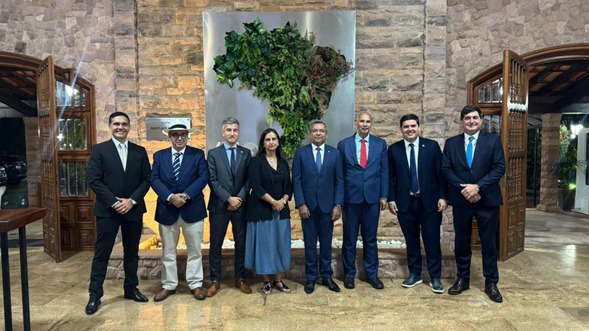This month, 20 IICA member countries will be taking part in the Conference of the Parties to the Cartagena Protocol on Biosafety.
San Jose, Costa Rica, 12 September 2014 (IICA). The Inter-American Institute for Cooperation on Agriculture (IICA) enabled 19 countries in the Americas to share their positions on biosafety and the reduction of the potential risk of the use of living modified organisms (LMOs), in the run up to the next world meeting on these issues, which will be held in the Republic of Korea from 29 September to 3 October.

In a meeting held at IICA’s Headquarters in San Jose, 38 representatives of national biosafety authorities (ministries of agriculture and environment and national commissions on the subject) of the countries of the Americas agreed to request clear, precise guidance on risk assessment and analysis, and to discuss further the socioeconomic ramifications of the use of LMOs in agriculture.
The proposals will be put to the seventh Conference of the Parties to the Cartagena Protocol on Biosafety, which will take place in the Korean city of Pyeongchang.
Agriculture faces the challenge of supplying food to the world’s population, set to top nine billion by 2050. International organizations like IICA and the Inter-American Development Bank (IDB) and public-private partnerships such as the Global Harvest Initiative (GHI) have suggested that Latin America and the Caribbean can make major contributions to food security if technology is introduced and new investment is forthcoming to raise productivity in the agricultural sector.
At the meeting organized by IICA, held at the beginning of September, the countries were also of the opinion that it was viable and realistic to incorporate the phrase “may contain LMOs” in the invoices of grain shipments, the Institute’s coordinator of biotechnology and biosafety, Pedro Rocha, explained.
The nations that took part in the preparatory meeting were Argentina, Bolivia, Brazil, Canada, Chile, Colombia, Costa Rica, Dominican Republic, Ecuador, El Salvador, Guatemala, Honduras, Mexico, Nicaragua, Panama, Paraguay, Peru, Uruguay and the U.S.
“IICA promotes a neutral space for dialogue to enable the countries to exchange ideas and positions, resolve differences and seek consensus; we also provide science-based knowledge for decision-making on agriculture, biotechnology and biosafety,” the Institute’s Director General, Víctor M. Villalobos, pointed out.
Since entering into force in 2003, the Cartagena Protocol has been used to promote the safe use of biotechnology and the reduction of the potential risks associated with the use of LMOs for biodiversity and human and animal health.
In ratifying the protocol, countries pledge to create biosafety frameworks, regardless of the sovereign position of each nation on the use of biotechnology in agriculture.
Parallel to the preparatory meeting for the Conference of the Parties to the Cartagena Protocol, representatives of the North American Biotechnology Initiative (NABI) and the Southern Agricultural Council (CAS) met at IICA to increase the dialogue on biosafety between the two regions of the hemisphere.
A meeting also took place of representatives of the countries that make up the Central American Initiative on Biotechnology and Biosafety (ICABB), created in February 2013 with assistance from IICA.
The delegates of Bolivia, Colombia, Ecuador and Peru met to share information about the biosafety situation in their countries and agreed to maintain more effective communication, using technological platforms facilitated by IICA to do so.
For further information:
pedro.rocha@iica.int











